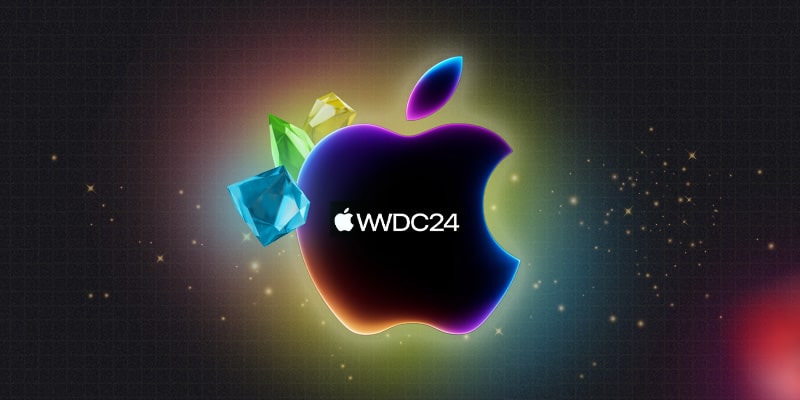
According to Statista, the number of mobile apps in the play stores across multiple operating systems is increasing. And, in 2019, we have over 5 million mobile apps in the search results of 5 app stores.
Combined with the fact that only 13.31% of all apps get more than 10,000 downloads in their entire lifetime, we can understand how important app marketing is for the success of your app.
We do not want your app to die after launch, so we worked a little on making sure that we teach you the best ways to optimize your app store keywords for a better ranking!
One of the best ways to help people that search for your app is to use ASO. App store optimization is the marketing process done by marketing and app developers in order to push an app in front of potential users organically.
Being very similar to SEO (search engine optimization), ASO revolves around keywords in your app and a couple of other factors.
Why is it important to choose the right app store keywords?
According to Apple, over 65% of all app downloads are organic. Meaning that people use search terms to look for apps and find your app (or your competition’s app) without seeing an ad or costing the company any money.
This comes as an opportunity for both big and small app publishers.
If you are a small app developer and you don’t have a big budget to burn on ads, ASO will help you get a decent amount of app installs. Combined with your app purchases, it will help you develop a budget that can be used for app improvements or for better app marketing.
Yet, if you represent a big company, you can still optimize your app store keywords in order to boost your app in the search rankings, bring more relevant users and increase revenue.
Another reason why you need to choose the best app store keywords is relevancy. People are more inclined to download an app that they understand just by reading the app name and app description.
Installing an app, trying it and uninstalling it is something most users don’t have time for. So, if your app doesn’t get their attention the first time, most probably, it never will.
Need help with ranking on the best App Store Keywords?
Our ASO experts and Marketing specialists are here to help you achieve success.
Choosing the right keywords for the app store.
The best way of choosing app store keywords is looking for keyword search volumes. Using the right ASO tools, you can better understand what keywords are relevant to your app.
It’s only logical to go for a keyword that has 10,000 searches rather than 100.
In order to find the right keywords for your app, you need to follow these 4 steps:
- Brainstorm keyword variants
- Get insight from users
- Take a look at your competition
- Use tools in order to validate the data
Of course, you can always ask for some help from an app store optimization company in order to reduce your workload.
Brainstorm keyword variants
Nobody knows an app better than the team that created it. Start an internal brainstorm session and talk about what words can better describe what your app can do and what represents the app.
No idea is a bad one. Write them all down, as you’ll validate them anyway using ASO tools. You never know when you’ll find the best one!
If you are lacking inspiration, start by going into the app store and searching for a particular word, the app store will start suggesting new keywords and ideas.
Also, make sure that you put yourself into not one, but multiple user’s shoes. While a user may search for a “time tracker”, another user may search for a “stopwatch” or a “chronometer”.
It really depends on what they are searching for and what their needs are. As you can see below, the results for “time tracker” and “stopwatch” are quite different.
Get insight from users
A really important lesson that we got from our years in marketing is that you never know your user well enough. Each user is different and thinks their own way.
Also, your input, experience, and ideas may be biased because of your connection with the project.
A user that never used your app can be a valuable source of information, feedback and insight.
As long as you can afford it, make sure to run quantitative and qualitative research sessions around your core market. Make sure that you write down all of their ideas and if you already came with some app names, get feedback on that as well. 🙂
Take a look at your competition
Contrary to popular belief, the wheel was never reinvented, it was only improved. The same thing can be applied to your app.
If you’re in the Wholesale food distribution industry and came up with an amazing app, you haven’t invented distribution. Yet, you are improving the market and life of your users.
And, for you to improve something, you need to start from the basics (your competitors that are already present on the market). Define what the competition is doing, both good and bad, and decide on how you can be better.
An ASO expert can help you better understand where your competition is ranking in the app store search and export all the data for you to look into. You can later use that data to create your own app store keyword strategy.
Use tools in order to validate the data
As we’ve mentioned earlier, no idea is a bad one. At least, not until you get the relevant data.
Once you have your keyword list, you need to analyze the traffic and difficulty scores for each keyword and phrase. The challenge begins when different tools provide different results for the same keywords.
Research we conducted that compared popular ASO tools on the market, showed some troubling data – there are massive gaps in data reported between tools, turning it harder to make educated decisions optimizing your app.
This is why we use multiple tools, including our own proprietary software to ensure we get the most accurate numbers.
Make sure that you look into both Google Play store and Apple App store, as they have different search volumes. (And different apps as we’ve seen in the first image of this article)
Where to integrate your app store keywords?
Every app store has its own set of characteristics and ways to integrate keywords. Google Play store only allows your to integrate the keywords inside the content, while Apple app store has a specific keyword field.
We’ll talk about the top 2 app stores and give you advice on how to integrate your keywords, even long tail keywords, in order to rank your app higher.
Google Play Store keywords
On the Google Play Store, an app can be optimized using the following factors:
- Title
- Url
- Developer name
- Short Description
- Description
- Icons
- Screenshot
- Featured Graphics
- Promo video
Out of the ones presented, only 5 of them are directly influenced by your keyword.
Add your app keywords in your Google Play Store Title
Your app title or name can be up to 50 characters. If you have the space, use it. Keep your brand’s name short and easy to understand while adding the necessary keyword inside the app title.
The “Calm” app, one of Moburst’s top clients uses this aso technique by integrating relevant app store keywords inside its title.
Calm is a meditating app, that can help people sleep better, relax and reduce stress. Because of this, they integrated the main benefits inside the title.
Remember that you can localize your app title. So, if you plan to release your app in multiple countries, research your keywords in each language. A keyword can be highly searched in one language and almost non-existent in another.
Optimize the Google Play Store URL with a keyword.
The Google Play Store uses backlinks as a ranking factor. It also takes some SEO features as well, being quite similar.
As a result, introducing your main keyword inside of your url can increase the ranking of your app.
Gett, a ridesharing app from Israel used this featured for their app. They knew that their service is similar to taxi services, so why not push the app towards taxi users.
A great example of how the URL can affect your ranking was produced by Nintendo. They ranked their Super Mario app on the Zara keyword. In some countries in the top 10.
All of this because the URL looks like this: https://play.google.com/store/apps/details?id=com.nintendo.zara
Should you add a keyword to your developer name?
For most companies, changing the developer name cannot be done, as the brand must be present there.
Yet, for small indie companies where the brand is not that important, using a special category keyword for your developer name can highly impact your traffic and app installs.
As you can see from the above example, if you’re searching for the Google Play store Keyword: “top free games”, 2 of the top 5 developer names are related in a way to the keyword.
Again, if you are a really big brand, you may not be able to do this optimization. But it’s worth taking into consideration.
Need help with ranking on the best App Store Keywords?
Our ASO experts and Marketing specialists are here to help you achieve success.
Add the keyword in the Play Store Short Description!
Another section that you can use to present you app and integrate your app store keywords in order to increase the chance of organic traffic and installs is the Play Store Short Description.
Today, Google allows you to add a short description of 80 characters or less.
This will be the first piece of text users see besides your app name. Make sure that you write something that will catch their attention.
Integrate your App store Keyword at least once and maybe add an emoji for a little more color on the screen.
Google Play Store Descriptions section
After the Title, URL and short Description, you can also use the main app description. This is the most complex section that can be used to communicate with the users.
You can use it to showcase your app’s perks, integrate a call to action, provide information on new updates and optimize your app for multiple keywords.
While the first section had a limited number of characters available, the Google Playstore description allows you to write texts of over 4.000 characters.
On the Google Play Store, the entire description will be indexed and used for ranking. Because of this, you can optimize it for multiple variants or synonyms of your main app store keywords.
You can integrate special characters like emojis inside as well. And format it through HTML.
Apple app store keywords
On the Apple App Store, an app can be optimized using the following:
- App name
- Icon
- Subtitle
- App Previews
- Screenshots
- Description (not indexed)
- Promotional text (not indexed)
- What’s New
- Keywords
- Categories
Out of the ones presented, only 4 of them are directly influenced by your keyword.
Optimize your Apple App Name with your top keyword!
Using the keyword in the app name can increase organic downloads by over 10%. Just one little name change. Of course, try not to overdo it by stuffing multiple keywords inside your app name.
Make sure to add your app’s benefits inside of the app name.
Keywords in the App Store Subtitle.
Introduced in IOS 11 and only available on the Apple app store, subtitles are short phrases that are shown underneath your title and app icon.
This section will only allow you to write 30 characters. Less than on the Google Play Store. Make sure to use it smart. Integrate a keyword for increased search results and add a call to action or powerful incentive for convincing people to install your app.
Apple App Store Descriptions
According to Apple, the description is not used for ranking in terms of keywords. Yet, we do recommend making sure that you write something relevant for users.
Be extra careful with the first phrase. The first phrase can be seen without pressing the “Read more” button.
According to StoreMaven, only 2% of users actually press the “Read more” button. Impress or go home.
The short description can only be 252 characters long. Any character after that will be cut.
The App Store Keywords field
Apple simplified the process of keyword optimization by creating the App Store Keyword field.
In this section, you can add all of the keywords that represent your app, separated by commas.
You have 100 characters and we do recommend using all of them.
Don’t stress yourself with plurals or singulars, and do not add spaces and prepositions. Make sure that the keywords you use are original. If you are using really similar keywords, you will just waste the character count.
Also, there is no need to integrate the app name, developer name, category of the app or brand name. Apple’s app store will index them anyway from the other elements inside the app page.
This section can also be localized. So translate your keywords and make another research in order to make sure you do not forget people from other countries or multilinguals.
Don’t want to optimize the keywords yourself?
If you don’t want to spend the time or budget on ASO tools, researching the market and scrolling through tens of thousands of excel rows in order to pick the right keyword, we can give you a helping hand.
At Moburst, we specialize in app store optimization services, doing work for clients like Mailwise, Gameit or Vodio.
Just get in touch with us and we’ll make sure to push your app in front of the masses.















